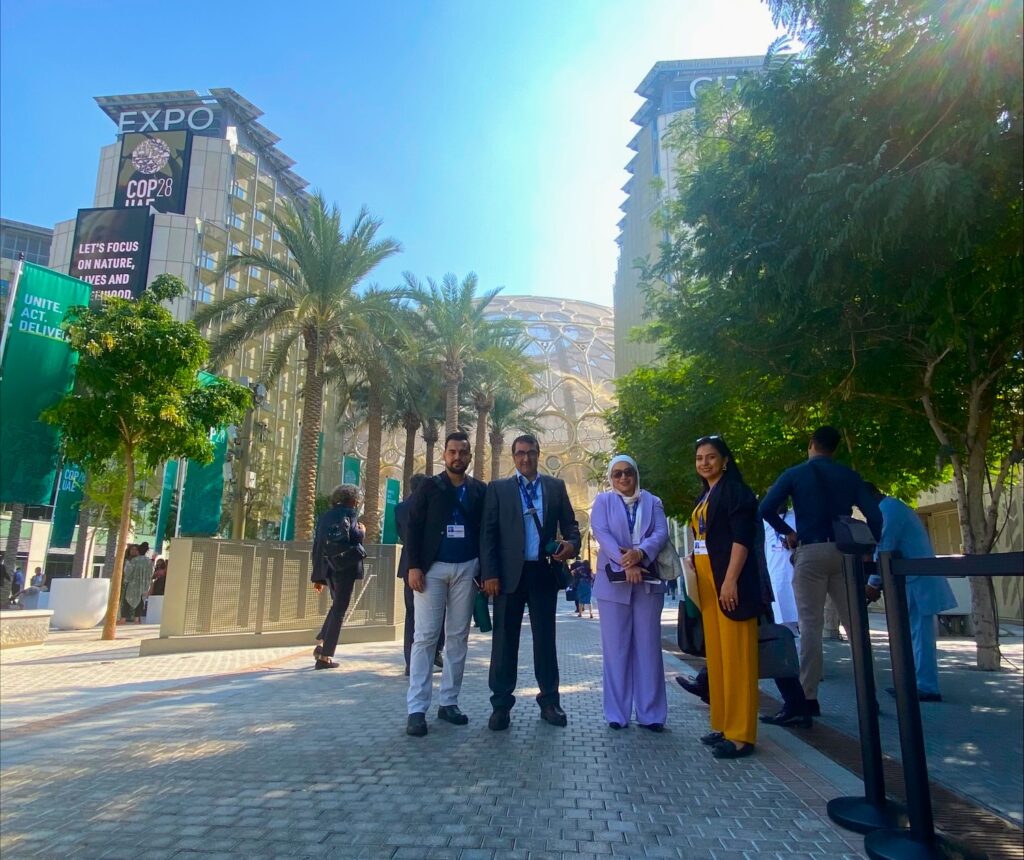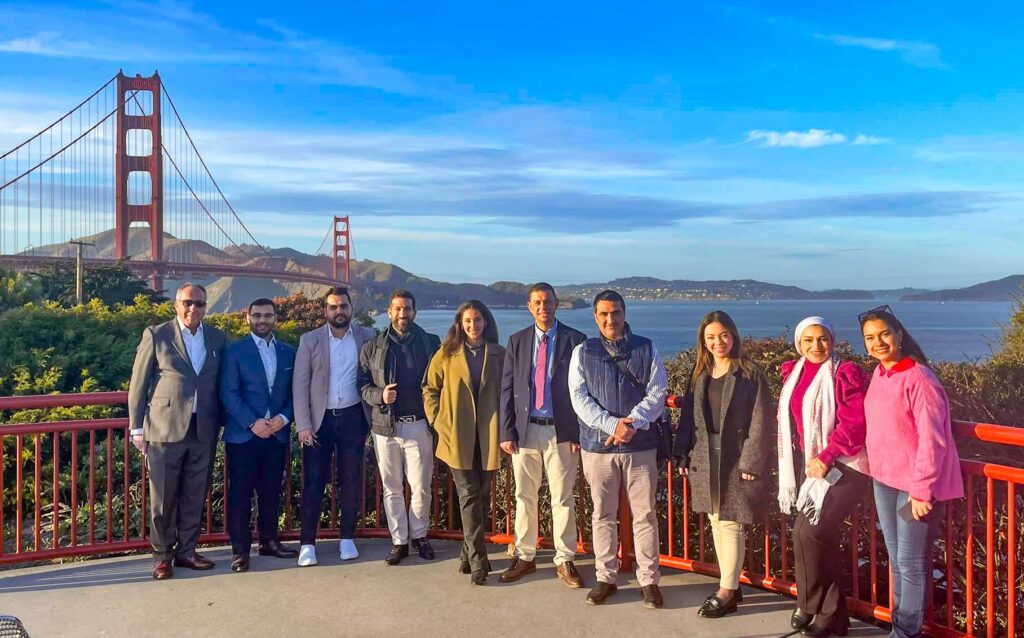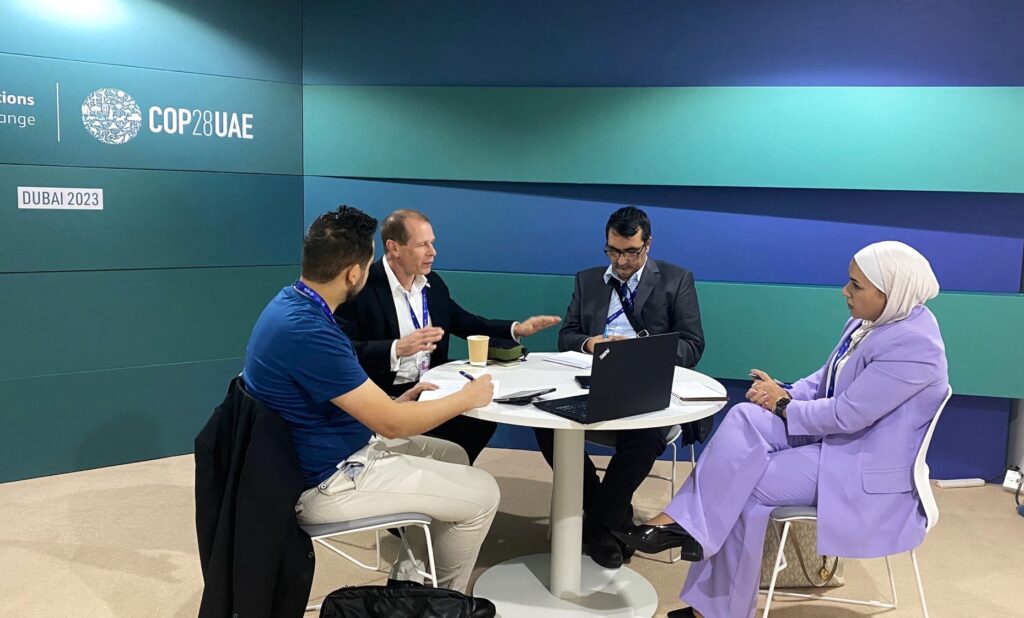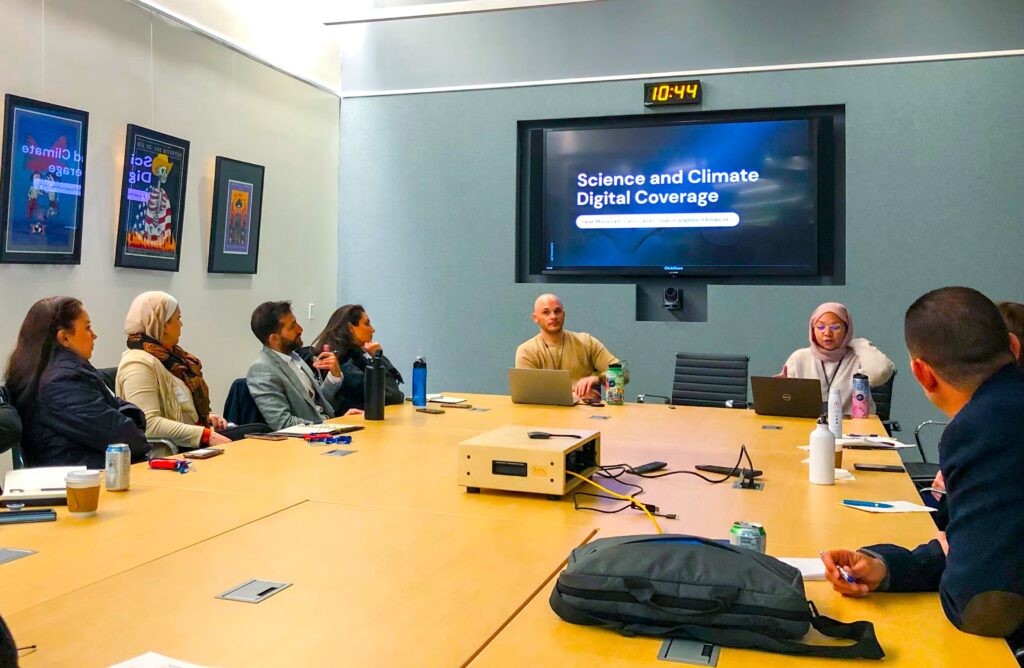-
What We Do
- WHERE WE WORK
-
About Us
 Welcome Message from Carol Jenkins
Welcome Message from Carol JenkinsFor more than 90 years, World Learning has equipped individuals and institutions to address the world’s most pressing problems. We believe that, working together with our partners, we can change this world for the better.
On my travels, I’ve had the opportunity to meet with many of those who have joined us in this mission. In Baghdad, we’ve trained more than 2,300 Iraqi youth who are already giving back at home. In London, our partners in the TAAP Initiative strongly believe that we are all responsible to practice inclusion. And in Vermont, our Experiment in International Living and School for International Training participants prove every day that they have the tools and the determination to change the world.
Please join us in our pursuit of a more peaceful and just world.
- Get Involved
Media Center > Story
Through exchange program, Jordanian journalists tackle climate change; attend COP 28
April 22, 2024

Last year, World Learning implemented a professional exchange focused on climate change for 10 Jordanian journalists. “The Road to COP 28: Jordanian Journalists and Communicators’ Climate, Economy, and Water Program” included two weeks of programming in the United States last spring and access to the 28th meeting of the Conference of the Parties (COP 28) to the United Nations Framework Convention on Climate Change in the United Arab Emirates held last December.
Jordan, one of the world’s most water-scarce countries, is experiencing a water crisis due to climate change, rapid population growth, poor water infrastructure, and regional competition. Environmental journalists play a significant role in framing these issues in the media, yet public understanding and debate remain stifled by misinformation and a lack of journalistic reporting on water and climate-related topics.
“The goal was to equip the journalists with how best to inform the public about Jordan’s climate and water challenges, including the implications for the economy and sustainability of the country,” said World Learning Senior Program Coordinator Kenna King, who helped coordinate the program, which was funded by the U.S. Embassy in Amman.
“This experience proved to be an eye-opening and transformative opportunity,” said Tariq Al Hmaidi, a journalist with Al Rai News Paper Daily. “We participated in various sessions, ranging from high-level negotiations to engaging workshops and side events. We also had the privilege of networking with delegates, experts, and fellow youth leaders from around the world, fostering a sense of global community and shared responsibility towards environmental action.”

During a trip to San Francisco, the group met with the team at Jordan Water Project, an international research effort aimed at evaluating water policy interventions in 15 water-stressed countries using Jordan as a model system. And during a workshop at Solutions Journalism Network, a nonprofit organization that trains journalists on responses to social issues, they examined how to provide solutions in their climate reporting without compromising credibility and professionalism.
They also met with journalism professors and attorneys focused on water issues as well as editorial leaders and environmental reporters at the San Francisco Chronicle, the largest newspaper in northern California, WIRED magazine, and KQED, a public radio station.
While they were in Albuquerque, they visited the Albuquerque Bernalillo County Water Utility Authority and met with New Mexico-based environmental journalists and climate reporters. At the New Mexico capitol building, they also heard hearings related to water, environmental, and climate change legislation and spoke with the state’s citizen-led legislature.
On a professional level, the program has equipped me with the tools and confidence to pursue a career in environmental communication and advocacy.
The most impactful component of the exchange was when the cohort attended COP 28, the annual international meeting where world leaders discuss how to tackle climate change, limit emissions, and halt global warming.

Last fall, World Learning was admitted as an official observer organization, a status that allowed the participants to meet with high-level stakeholders, grow their international networks, and report on global environmental issues relevant to Jordan’s own challenges.
Participants attended a session with Bisher Khasawneh, the prime minister of Jordan, and interviewed leaders such as Admiral Rachel Levine, assistant secretary for health for the U.S. Department of Health and Human Services, and Dr. John Balbus, director of the Office of Climate Change and Health Equity in the same agency.
In total, the group published 33 articles during the conference.
Following COP, the participants met with the U.S. Ambassador to Jordan for a capstone event in Amman, and this spring, World Learning implemented virtual programming that provided further professional development opportunities for the participants.

“On a professional level, the program has equipped me with the tools and confidence to pursue a career in environmental communication and advocacy. Since returning from the program, I have actively applied the knowledge and skills acquired to various aspects of my life. I have written 13 articles focusing on diverse environmental issues, incorporating the storytelling and communication techniques learned during the program,” said Al Hmaidi. “Additionally, I have participated in local environmental initiatives and advocacy campaigns, drawing upon my policy analysis and digital advocacy skills to make a tangible difference in my community.”





